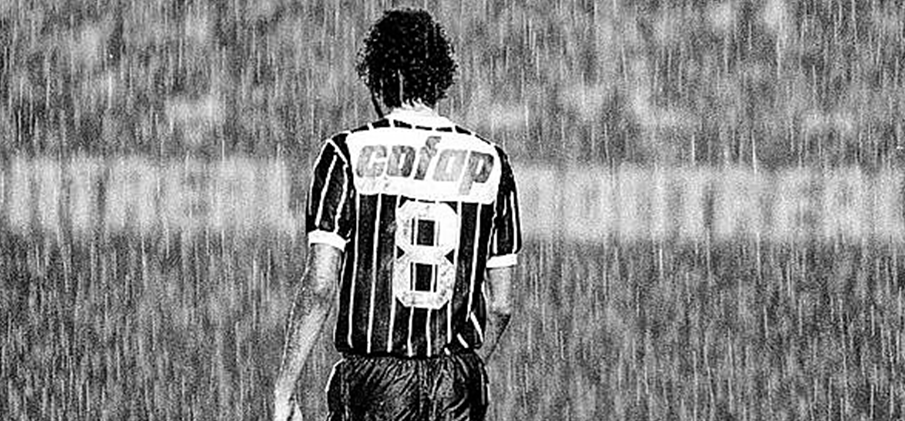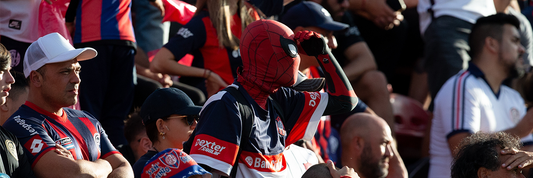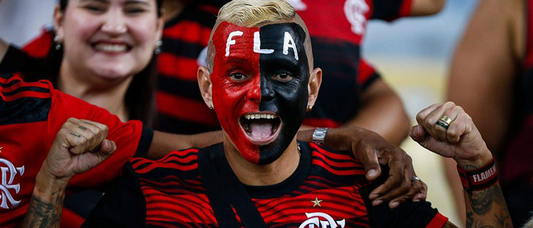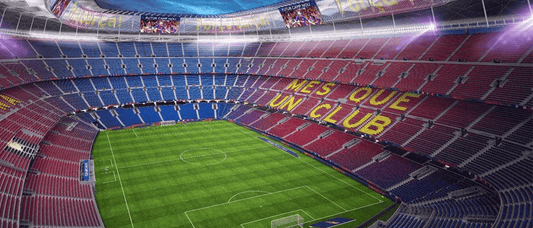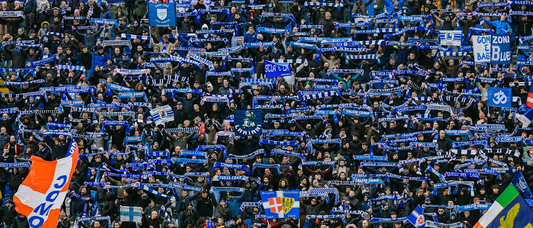Socrates is possibly the best footballer in history. Not good in the purely footballing sense, and he was very good, elegant, technical, magical... Sócrates Brasileiro Sampaio de Souza Vieria de Oliveira won with his attitudes and his charisma the affection of his people, of his people, of Brazil and of the world. He fought against injustice, embraced science, art and philosophy. A footballer committed to what was happening beyond the green and who also left signs of his human weakness. Socrates was a speaker and example, and also a sensational footballer. Although he didn't care about being the best footballer in history.

THE BEGINNINGS
Socrates was born in Belém de Pará. His father was a public official who loved literature and was passionate about Greek philosophy who gave his children the names of Greek philosophers: Sophocles, Sosthenes, Socrates... they were going to name his little brother Raí (Sao Paulo legend) Xenophon, but His mother refused to let there be another “thinker” in the family.
At home we studied, we talked, we discussed politics, philosophy and also football, since the ball does not have to displace the books from the shelves. Sócrates stood out playing soccer at Botafogo in Ribeirao Preto while devouring books and becoming interested in medicine. He would earn a doctorate at the University of Sao Paulo, meanwhile on weekends he stood out for his talent on the playing field.
In 1974 he was promoted to the first team of Botafogo de Ribeirao Preto and in 1976 he became the top scorer of the São Paulo championship. He had established himself in Brazilian football and in 1978 he signed for one of the biggest clubs in Brazil: Corinthians.

HIS BEST YEARS
Upon his arrival at Corinthians, Sócrates grew a beard, and his image was liked by fans who also admired his football and sympathized with his way of thinking. His fantasy plays, his stride, his elegance, the use of the heel and his goals from anywhere on the field led him to lead the Corinthian team. 172 goals in 298 games, impressive numbers with Timao despite not being a forward.
In 1979, Sócrates was international, and Corinthians became champion of São Paulo after 21 years of drought. The Corinthian fans idolized him, and always cheered him on in their celebrations with their fists raised. Because Socrates would go beyond what is merely football. He took advantage of his popularity in Corinthians to send a message to the Brazilian people. Together with other politically and socially aware colleagues, he would create a model of self-management that would shake the foundations of the military dictatorship that plagued Brazil.
In 1981, Waldemar Pires became president of Corinthians and hired as general director Adilson Monteiro Alves, a former university activist and sociologist who, with the support of footballers Walter Casagrande, Zenon de Sousa, Wladimir Rodrigues and especially Sócrates, would set the standards. foundations of the so-called Corinthian Democracy. It was a model of self-management of the club where players, management, coaches and even the kit man adopted an assembly model where everyone had a vote. Anything was decided through an assembly: training schedules, budget items, registrations, cancellations... in addition, this democratic method challenged the military regime that governed Brazil without opposition.
“When we entered the field, we played much more than a simple game. We were fighting for freedom in our country”, said Sócrates, who led a successful cub (they won the 82 and 83 championships) and the movement for the liberation of an oppressed people. The Corinthians players jumped onto the pitch calling for Democracy and participated in the increasingly more demonstrations opposing the dictatorial regime. In 1984, Sócrates declared that he would leave Brazil if parliament did not approve holding direct elections, and he did so. Since things did not change, he fulfilled his threat and went to play in Italy. It was the end of the movement. “Football has the luxury of allowing the worst to win”.

THE WORLD CUP IN SPAIN 82
They were not champions, but they are remembered as if they had been champions. Led by Tele Santana, Brazil's 1982 World Cup team went down in football history for playing dream football. An author team with Zico and Socrates as standard bearers. The two leaders of the team connected perfectly both on and off the field and captivated the world with their combined plays.
Brazil beat the Soviet Union in the first group game with a sensational goal from Socrates, and then won by playing some excellent football against Scotland and New Zealand. In the second phase they overcame Maradona's Argentina with a 3-1 score, and in the final group match they lost the battle of Sarrià against Italy (future champion) in one of the most memorable matches in the history of football.
Sócrates was the captain of Brazil, he played in all five of his team's matches and scored two goals.
We repeat, probably the Brazil of '82, of Zico, Sócrates, Cerezo or Falcao, was the best team that failed to win a World Cup.

WORLD CUP MEXICO 86
Despite playing a lackluster first match against Spain (Michel's no-goal), Brazil managed to win all three of its group matches and beat Poland in the round of 16 by 4-0. La Verdeamarela continued to be directed by Tele Santana, who did not renounce the style of football that had made it so popular in the 82 World Cup in Spain.
But, in the quarterfinals they had to face Platini's France, and in another match in the history of the World Cup, they were finally defeated, after an exciting match, thanks to a tragic penalty shootout. Socrates missed the first penalty of the shootout. Zico had made a mistake during the game. That elimination marked the end of a cycle in the Brazilian team. Sócrates had played at a high level in two World Cups (in Mexico he also scored two goals) but was unable to become world champion, something that his brother Raí would achieve in 1994.
At that World Cup, the Brazilian idol also stood out for his messages of peace and support for the Mexican people after suffering a serious earthquake. He improvised these messages on a stocking that he put on his head.

ITALIAN ADVENTURE
On May 19, 1984, Sócrates ventured to sign for Fiorentina. During the 1980s, Italy had become the destination of the main figures of the moment: Platini, Maradona, Rummenigge... and that was where Zico and Sócrates went. “The white Pelé” chose Udinese, “the Tacco di Dio” donned the wonderful viola jacket of Fiorentina.
In Florence the expectations with Sócrates were very high, the team had finished third in 83/84 and with Sócrates, Gentile and Passarella one could dream of the scudetto.
However, the Brazilian star arrived in Italy at the age of 30, and with little desire to train according to the demands of the highly professionalized football in Europe. They gave him a luxury house, a car, a school for his four children and a pediatrics course. But, Socrates preferred to go out drinking beers and spend the nights chatting until the wee hours of the morning than getting in shape during training. Upon his arrival in Italy he already realized that he was coming to read Italian authors in their original language.
The team finished ninth in his only season at Fiorentina. He did not perform as expected, although he scored 8 goals in 33 games.

RETURN TO BRAZIL
After the fiasco of his time at Fiorentina, Sócrates returned to Brazil to join Zico's Flamengo. With the Mengao shirt he would barely play eleven games and score three goals. But he won the Rio championship and was called up to the 86 World Cup in Mexico where the Canarinha would try to win the precious cup bathed in gold and emerald with the base of the 82 team.
During his stay at Flamengo, he coincided with Zico, but also with future promises such as Bebeto or Aldair. Injuries kept him off the field too many times and in 1988 he signed for Santos to fulfill his childhood dream, playing for the team he admired as a child.
He barely played games for Santos and closed his career playing for the same team that brought him fame, Botafogo de Ribeirao, where he hung up his boots in 1989.
After his retirement, he was active in the Workers' Party and showed interest in art, music and, of course, philosophy. He was also a newspaper columnist and even tried his hand at coaching.
But unfortunately, Socrates also found refuge in drink. Once he hung up his boots, his problems with alcohol grew. He also abused tobacco. In 2011 he was diagnosed with liver cirrhosis and on December 4 of that year he died. He did them exactly as he had requested in an interview in 1983: “I want to die on a Sunday and with Corinthians as champions”, and so it was, it was fulfilled. That day of his death was Sunday and Corinthians emerged champion. Sócrates inspired the character of Roberto Sedinho in the series Supercampeones.


